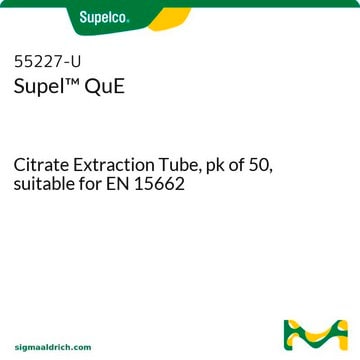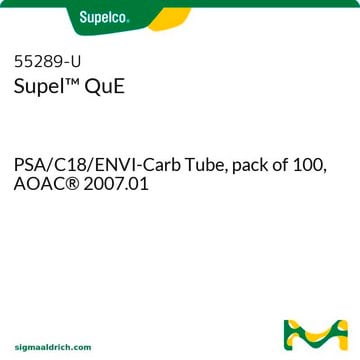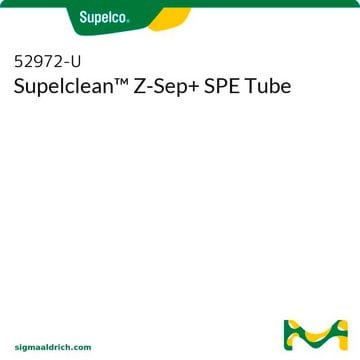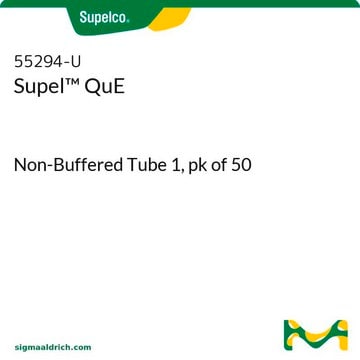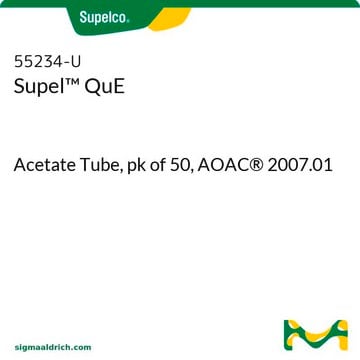55447-U
Supel™ QuE QuEChERS tube
Verde Tube, centrifuge tube volume 2 mL, pack of 100 ea
Synonym(s):
QuEChERS
About This Item
Recommended Products
Product Name
Supel™ QuE, Verde Tube, centrifuge tube volume 2 mL, pack of 100 ea
material
polypropylene tube
Quality Level
product line
Supel™
composition
magnesium sulfate, 150 mg
Supelclean™ ENVI-Carb™ Y, 10 mg
Supelclean™ PSA, 50 mg
Z-Sep+, 60 mg
packaging
pack of 100 ea
technique(s)
QuEChERS: suitable
centrifuge tube volume
2 mL
matrix active group
PSA phase
carbon phase
zirconia-based phase
application(s)
food and beverages
Looking for similar products? Visit Product Comparison Guide
General description
Using the QuEChERS method, food/agricultural samples are first extracted with an aqueous miscible solvent (e.g., acetonitrile) in the presence of high amounts of salts (e.g., sodium chloride and magnesium sulfate) and/or buffering agents (e.g. citrate) to induce liquid phase separation and stabilize acid and base labile pesticides, respectively. Upon shaking and centrifugation, an aliquot of the organic phase is subjected to further cleanup using SPE. Unlike traditional methods using SPE tubes, in dispersive SPE, cleanup is facilitated by mixing bulk amounts of SPE (e.g., Supelclean PSA, ENVI-Carb, and/or Discovery DSC-18) with the extract. After sample cleanup, the mixture is centrifuged and the resulting supernatant can either be analyzed directly or can be subjected to minor further treatment before analysis.
Supelco carries a line of vials and centrifuge tubes containing pre-determined amounts of salts and SPE sorbents to support the most common method configurations used today.
Suitability
Legal Information
Not finding the right product?
Try our Product Selector Tool.
Signal Word
Danger
Hazard Statements
Precautionary Statements
Hazard Classifications
Eye Dam. 1 - Skin Corr. 1B
Storage Class Code
8A - Combustible corrosive hazardous materials
WGK
WGK 3
Flash Point(F)
Not applicable
Flash Point(C)
Not applicable
Choose from one of the most recent versions:
Already Own This Product?
Find documentation for the products that you have recently purchased in the Document Library.
Customers Also Viewed
Our team of scientists has experience in all areas of research including Life Science, Material Science, Chemical Synthesis, Chromatography, Analytical and many others.
Contact Technical Service